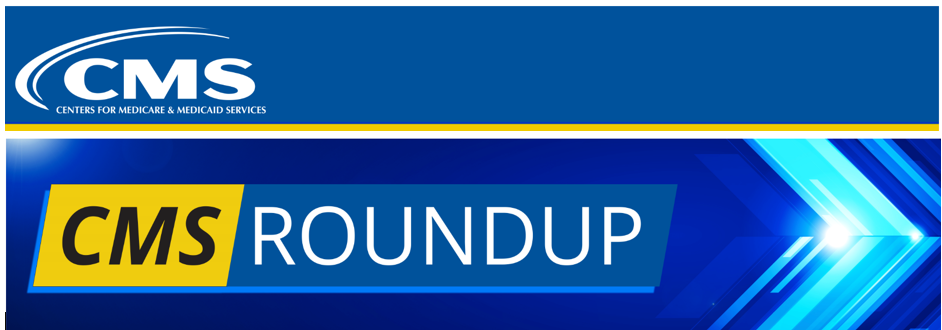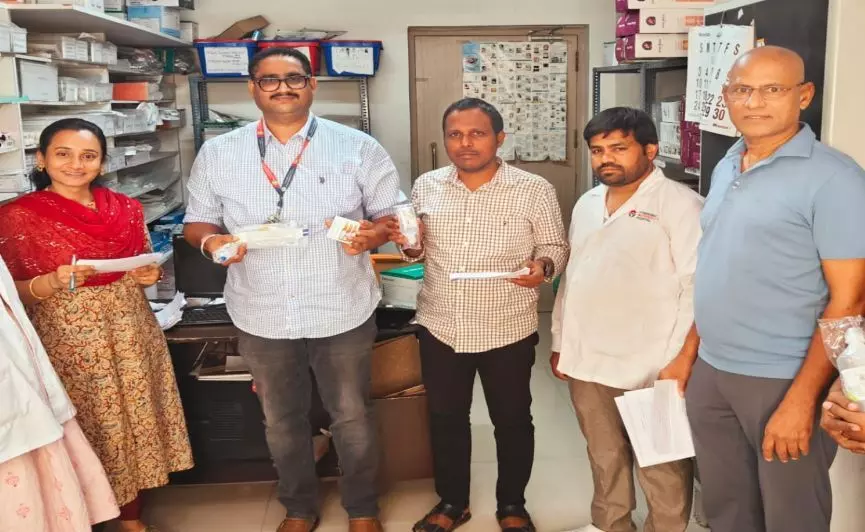CMS Unveils Key Updates and Initiatives for Medicare, Medicaid, and Health Care Delivery
Washington, D.C. – The Centers for Medicare & Medicaid Services (CMS) has announced a series of significant updates and initiatives aimed at bolstering healthcare access, quality, and affordability.
From tackling improper payments to expanding access to substance use disorder treatment, these latest moves reflect CMS’s commitment to improving health outcomes for Americans.
Addressing Improper Payments
CMS released its Fiscal Year 2024 Improper Payment Data, shedding light on overpayments, underpayments, and cases where information was insufficient to determine payment accuracy. CMS emphasizes that while these reports are designed to safeguard program integrity, not all improper payments stem from fraud or abuse.
"While the reporting of improper payments is designed to protect the integrity of CMS programs, not all improper payments are the result of fraud or abuse — they can be overpayments, underpayments or payments where insufficient information was provided to determine whether a payment was proper," CMS stated.
Detailed information and a full fact sheet can be found on the CMS website.
Bridging the Digital Divide for Seniors
In recognition of National Rural Health Day, CMS released an infographic highlighting internet access and usage among Medicare beneficiaries, categorized by metropolitan residence status.
This data release coincides with updated statistics on internet access and usage among Medicare beneficiaries for 2023.
CMS also provided an annual data update on the socio-demographic and health characteristics of community-dwelling Medicare beneficiaries, also classified by metropolitan residence status, with data for 2022. This information is crucial for understanding the digital divide within Medicare beneficiaries and tailoring outreach and support programs accordingly.
Strengthening Nursing Home Care
CMS issued revised guidance for nursing home surveyors, incorporating updates to procedures for admissions, transfers, and discharges, and discouraging unnecessary use of psychotropic drugs and chemical restraints.
The revised guidance also focuses on compliance with the Payroll-Based Journal for reporting nurse staffing and clarifies definitions of pain levels and pain management strategies.
These revisions aim to ensure that survey practices remain aligned with current best practices and meet the evolving needs of nursing home residents.
Expanding Substance Use Disorder Treatment Access
CMS issued a letter to state Medicaid directors addressing the extension of Medicaid coverage for substance use disorder services, emphasizing the permanence of the mandatory Medicaid benefit for medication-assisted treatment for opioid use disorder.
The letter also clarifies Medicaid coverage for certain individuals who are patients in eligible inpatient facilities (known as "IMDs"), settings often ineligible for Medicaid benefits.
Investing in Medical Training
CMS announced the awarding of graduate medical education (GME) residency slot awards, as authorized by the Consolidated Appropriations Act, 2021.
This third round of 200 new Medicare-funded medical residency positions focuses on placing these slots in medically underserved areas, with 109 hospitals receiving awards.
Additional information is available on the CMS website.
Focus on Optimizing Health Care Delivery
Looking ahead, CMS will host the 2024 Conference on Optimizing Health Care Delivery to Improve Patient Lives on December 12, 2024.
This virtual conference will explore innovative strategies and best practices aimed at improving healthcare access and quality while minimizing administrative burdens. Registration is open, and more details about the conference can be found online.
Prioritizing Digital Quality Measures
CMS released its 2024 Measures Under Consideration (MUC) List, which features 41 measures, all utilizing digital data sources.
This list reflects CMS’s commitment to prioritizing the development of interoperable and digital quality measures, as outlined in the CMS National Quality Strategy.
Informational materials and details about the process, including deadlines for providing feedback, are available publicly on the CMS website.
Subscriptions & Milestone Weeks
CMS, an agency within the U.S. Department of Health and Human Services, provides essential health coverage programs to millions of Americans, championing health equity, expanding coverage, and working towards improved health outcomes nationwide.
## Expert Spotlight: Decoding CMS’s Latest Move to Enhance Healthcare
The Centers for Medicare & Medicaid Services (CMS) recently unveiled a slew of updates aimed at fortifying the nation’s healthcare system. Today, we’re joined by Dr. Emily Carter, a leading healthcare policy expert, to delve into the intricacies of these changes and their potential impact on Americans.
**Welcome, Dr. Carter!**
**Dr. Carter:** Thank you for having me.
**World Today News:** CMS has highlighted its efforts to combat improper payments. Can you elaborate on the significance of this initiative, and what measures CMS is implementing?
**Dr. Carter:** The release of the improper Payment Data for Fiscal Year 2024 is a crucial step towards ensuring the fiscal sustainability of Medicare and Medicaid. While CMS rightly emphasizes that not all improper payments are due to fraud, identifying and addressing overpayments, underpayments, and cases with insufficient facts are vital to protect taxpayer dollars and ensure the long-term viability of these programs.
CMS is utilizing a multi-pronged approach, including data analysis, provider education, and enhanced payment verification processes, to tackle improper payments. This will involve greater scrutiny of claims, stricter adherence to billing guidelines, and possibly even post-payment audits.
**World today News:** CMS has also released data highlighting the digital divide among Medicare beneficiaries, particularly in rural areas. What are the implications of this disconnect, and what steps can be taken to bridge this gap?
**dr. Carter:** The digital divide is a important barrier to healthcare access, particularly for seniors residing in rural communities. Lack of reliable internet access hinders their ability to utilize telehealth services,access online health information,and even manage their prescriptions digitally.This can result in delayed diagnoses, inadequate care management, and ultimately, poorer health outcomes.
CMS acknowledges this issue and is working collaboratively with stakeholders to expand broadband access in underserved areas. This could involve incentivizing internet providers to invest in rural infrastructure and promoting digital literacy programs tailored to seniors.
**World Today News:** The CMS press release also mentions expanding access to substance use disorder treatment. Can you shed light on this initiative and its potential impact?
**Dr. Carter:** The opioid crisis remains a pressing national health emergency. Expanding access to substance use disorder (SUD) treatment is a critical step in addressing this epidemic. CMS is actively working to improve access to medication-assisted treatment (MAT) and other evidence-based SUD services through various initiatives, including:
* **Parity requirements:** Ensuring insurance plans cover SUD treatment on par with other medical conditions.
* **Increased reimbursement rates:** encouraging providers to offer SUD services by providing adequate financial incentives.
* **Workforce development:** Investing in training and education programs for SUD treatment professionals. These efforts aim to significantly improve the availability and quality of SUD care, ultimately helping individuals achieve recovery.
**World Today News:** what do you believe are the key takeaways from CMS’s latest announcements?
**Dr. Carter:** CMS’s latest actions demonstrate a commitment to improving healthcare on multiple fronts. By focusing on fiscal responsibility,addressing the digital divide,and expanding access to critical services,like SUD treatment,CMS is taking concrete steps to ensure a more equitable and sustainable healthcare system for all Americans.
**World Today News:** Thank you, Dr.Carter, for sharing your valuable insights. This has been an enlightening discussion.


